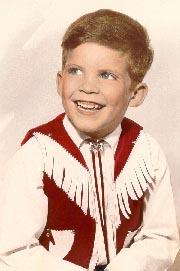A check-in on the Banjo versus TV project — J.R.'s ongoing plan to spend more time on his banjo than on TV. This post covers 1/17/2010 through 1/23/2010.

I ran across an interesting article, "Improvisation," by Harold Streeter in the June 1979 back issue of The Banjo Newsletter (I'd ordered it up for Jack Hatfield's tablature to Polka on the Banjo.)
Streeter discusses learning a song, improvising and faking.
[T]here is a definite difference between improvising and faking. The word "faking" defines itself well. Meaning simply that the player is not familiar with the song at hand and is therefore not in complete control.
...
Faking, then, is uncontrolled deviation from the melody, or to put it another way, coming in the front end of a song and hoping you make it out the back end in one piece with a smile on your face.
The capability to improvise upon a song simply means that a player has leared a song well enough in terms of its melody and chord progression that he can either play the melody straight or deviate from it by choice. The point is that the player is in complete control. He can take certain liberties with a song because he chooses to, not because he is unfamiliar with the song, which results in no options at all.
That makes a lot of sense to me. I've encountered a lot of banjo players who eschew tablature and wrote learning of songs in favor of playing along on-the-fly. Which, in Streeter's terms, makes them fakers.
A real improviser, to Streeter, will learn a song well and then riff on it at leisure. I like that idea a lot.
Also in the last week:
- I had a lot of fun at a jug band jam in Chicago. As I wrote previously, this is regular event held at 9:00pm on the third Monday of each month at the Grafton Pub and sponsored by the Barehand Jugband. You should join!
- I saw Tim Eriksen perform at the Old Town School of Folk Music. I liked his instrumentals (on a bunch of instruments including the banjo) but what really stood out for me was his use of throat singing. It's a technique that I described in December when I wrote about the Tuvan throat singing group Alash. It's interesting to see the same technique used in both American and Tuvan folk singing.
- When I started my Banjo versus TV project I put together a presentation that noted the average American watches 3 hours of TV per day. I thought of that when I saw the Slashdot article New Study Shows Youth Plugged In Most of The Day. "Young people now devote an average of seven hours and 38 minutes to daily media use." Imagine if I spent nearly that amount of time on my banjo.
Cross-posted at J.R.'s Banjo Hangout blog


4 comments:
I fear that I engage in a lot of faking....
My folk music blog: thepursuitoffolk.blogspot.com
Come be the first follower... its lonely out here.
Lots of people do a lot of faking, The Pursuit of Folk. Streeter isn't against faking. He says it's important, particularly in group situations.
What he is against is the I-only-need-to-fake-it approach. Streeter would have us fake it when we have to but encourages us to learn songs accurately as a first step toward truly improvising for that song.
And take heart that it is indeed a lonely world out here in the banjo blogs. I've been doing this for more than two years and have only gotten a handful of posts and followers -- most of them on my blog at the Banjo Hangout where I crosspost.
But I get recognized at jams and bluegrass festivals as the "Banjo versus TV guy" so I know people are reading!
I have one quibble with this part of your post: "I've encountered a lot of banjo players who eschew tablature and rote learning of songs in favor of playing along on-the-fly. Which, in Streeter's terms, makes them fakers." That implies that the only way to learn a song accurately is by tablature. In fact, many musicians learn songs accurately by applying a knowledge of theory and a good ear. If they then improvise on the basic melody, that doesn't by definition make them fakers.
Anyway -- keep on pluckin'!
Oh, good quibbling, Arlo. Yes, I think Streeter would be fine with learning a song without tablature. He's just encouraging people to learn a song well in order to truly improvise upon it.
Post a Comment